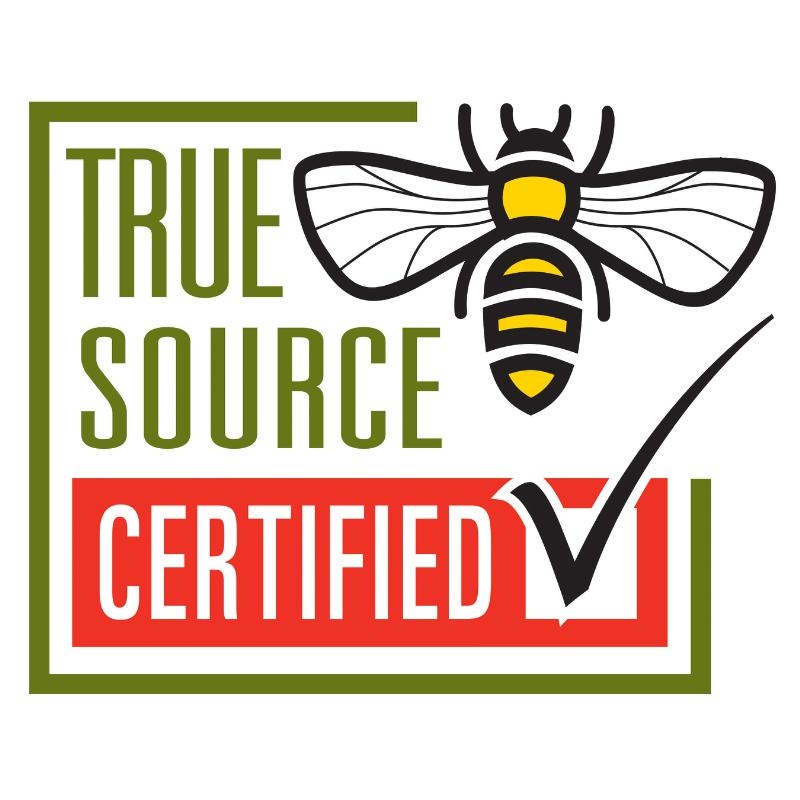New True Source Certified logo ensures honey was ethically and legally sourced.
October 15, 2013

Facing continued decline in their bee colonies and shrinking honey harvests, U.S. beekeepers are urging U.S. consumers to take an easy step in helping preserve the domestic honey business and assure the quality of the honey they choose: Buy source-certified honey.
"Just look for the 'True Source Certified' logo," said Randy Verhoek, president of the American Honey Producers Association. "That logo tells you that the honey you're buying was ethically and legally sourced. If you don't see the logo, ask your retailer or honey company to join the program. And make sure that your favorite foods that feature honey—from breakfast cereals to snacks—are made by a food manufacturer who purchases honey from a True Source Certified honey company.
"By taking this simple step, you help ensure quality, and you also help keep U.S. beekeepers in business, by preventing the sale of inferior, underpriced and illegally sourced honey," he said.
The True Source Certified™ program has been applauded by U.S. beekeepers and honey industry leadership, including the American Honey Producers Association and the American Beekeeping Federation, the two largest organizations for U.S. beekeepers. One of the main reasons is that it provides traceability from hive to table, helping ensure the food safety and security of the honey used in the United States.
To meet its honey demand, the United States imports more than 60 percent of the honey it needs from other countries. Most imported and domestic honey is from high-quality, legal sources. But some honey brokers and importers illegally circumvent tariffs and quality controls, selling honey to U.S. companies that is of questionable origin—specifically, illegally imported Chinese honey. This threatens the U.S. honey industry by undercutting fair market prices and damaging honey's reputation for quality and safety.
"Cheap illegal imports hurt all legitimate U.S. packers and beekeepers," said George Hansen, president of the American Beekeeping Federation. "We're facing the collapse of our colonies on the one hand, and unfair competition in the marketplace on the other. Consumers have the power to help U.S. beekeepers maintain their footing in extremely tough times—and to ensure the quality of the honey they buy."
Seven honey companies and a number of importers and international exporters are now True Source Certified or registered, representing about one-third of honey sold in North America. Many of the largest grocery retailers and club stores now only use certified honey for their store brands, including Costco (Kirkland Signature) and Target (Market Pantry and Simply Balanced). But the program still has a way to go until consumers can be confident in the source of their honey.
"Interest is growing in the program, but we need the help of consumers to raise the level of awareness and commitment," said True Source Honey Executive Director Gordon Marks. "We ask people to look for the label, and to check out TrueSourceHoney.com if they have questions about the program or want to do more."
Even with recent indictments by federal authorities against companies illegally importing Chinese honey, there are indications that millions of pounds of illegally sourced honey may continue to enter the United States. In February of this year, two of the nation's largest honey suppliers admitted to buying illegally imported Chinese honey, including some that was adulterated with unauthorized antibiotics, to avoid $180 million in U.S. duties. More information on these enforcement activities can be found under "media news" in the True Source Honey website's newsroom.
In addition to being undercut in the marketplace, American beekeepers have been expressing growing alarm at the severe loss of bee colonies due to colony collapse disorder. Some beekeepers have reported losses of over 50% of their bee population.
The True Source Certified™ program was launched by a group of concerned North American honey companies and importers. It provides audits by an internationally recognized third-party firm that certifies the source of honey from hive to table.

You May Also Like


